Niobium powder is a material that, despite being relatively unknown to the general public, plays a crucial role in various high-tech applications. In this article, we’ll delve deep into the world of niobium powder, exploring its types, properties, applications, and more. Let’s embark on this journey to uncover what makes niobium powder so special.
Przegląd proszku niobu
Niobium, a rare and versatile metal, is known for its unique properties that make it indispensable in various industries. When processed into a fine powder, niobium becomes even more versatile, enabling its use in advanced manufacturing processes and high-performance applications. But what exactly is niobium powder, and why is it so important?
Key Properties of Niobium Powder
Niobium powder is celebrated for its remarkable properties, including:
- Wysoka temperatura topnienia: Niobium’s melting point is around 2,468°C (4,474°F), making it suitable for high-temperature applications.
- Odporność przeciwkorozyjna: Niobium is highly resistant to corrosion, especially in acidic environments.
- Superconductivity: Certain niobium alloys exhibit superconducting properties at very low temperatures.
- Wytrzymałość i trwałość: Niobium adds strength and durability to alloys, enhancing their performance in demanding applications.
Why Niobium Powder Matters
The versatility of niobium powder lies in its ability to enhance the properties of other materials and its use in producing high-performance components. From aerospace to medical devices, niobium powder plays a vital role in pushing the boundaries of technology and innovation.
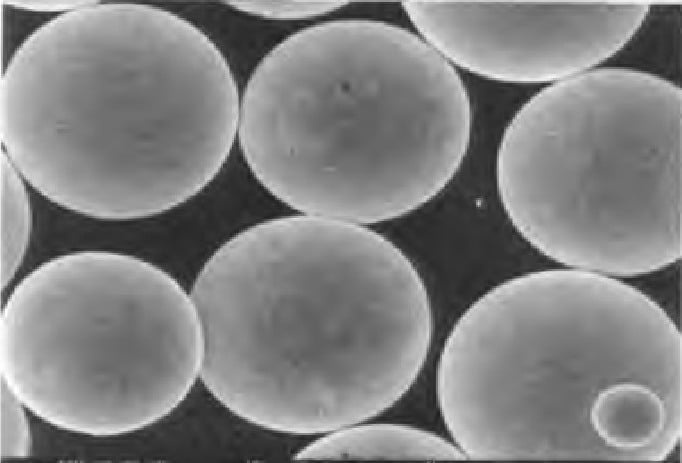
Types and Composition of Niobium Powder
Niobium powder comes in various grades and compositions, each tailored for specific applications. Here, we’ll look at some of the most common types of niobium powder available on the market.
| Typ | Kompozycja | Właściwości | APLIKACJE |
|---|---|---|---|
| Niobium Powder (99.9% Pure) | 99.9% Niobium | High purity, excellent corrosion resistance | Superalloys, electronics, superconductors |
| Niobium Hydride Powder | Niobium + Hydrogen | Enhanced hardness, modified electrical properties | Hydrogen storage, battery technology |
| Niobium Carbide Powder | Niobium + Carbon | Wysoka twardość, odporność na zużycie | Narzędzia tnące, powłoki odporne na zużycie |
| Niobium-Aluminum Alloy Powder | Niobium + Aluminum | Lekkość i wysoka wytrzymałość | Aerospace components, structural materials |
| Niobium-Titanium Alloy Powder | Niobium + Titanium | Superconductivity at low temperatures | MRI machines, particle accelerators |
| Niobium-Tin Alloy Powder | Niobium + Tin | Superconductivity at higher temperatures | Superconducting magnets, scientific instruments |
| Niobium-Nickel Alloy Powder | Niobium + Nickel | Wysoka wytrzymałość, odporność na korozję | Zastosowania morskie, przetwarzanie chemiczne |
| Niobium-Zirconium Alloy Powder | Niobium + Zirconium | Improved thermal stability, corrosion resistance | Nuclear reactors, aerospace |
| Niobium-Silicon Alloy Powder | Niobium + Silicon | Wytrzymałość na wysokie temperatury, odporność na utlenianie | Gas turbines, jet engines |
| Niobium-Boron Alloy Powder | Niobium + Boron | Enhanced mechanical properties, lightweight | Advanced composites, armor plating |
Detailed Descriptions of Niob w proszku Modele
- Niobium Powder (99.9% Pure)
- Kompozycja: 99.9% Niobium
- Właściwości: This high-purity niobium powder offers exceptional corrosion resistance and high melting points, making it ideal for critical applications.
- APLIKACJE: Used in the production of superalloys for aerospace and electronics, as well as in superconductors for advanced scientific research.
- Niobium Hydride Powder
- Kompozycja: Niobium + Hydrogen
- Właściwości: Incorporating hydrogen enhances the hardness and modifies the electrical properties of niobium.
- APLIKACJE: Essential in hydrogen storage solutions and battery technology.
- Niobium Carbide Powder
- Kompozycja: Niobium + Carbon
- Właściwości: Known for its extreme hardness and wear resistance.
- APLIKACJE: Ideal for cutting tools and wear-resistant coatings in industrial applications.
- Niobium-Aluminum Alloy Powder
- Kompozycja: Niobium + Aluminum
- Właściwości: Lightweight with high strength, this alloy is perfect for structural applications.
- APLIKACJE: Widely used in aerospace for components that require a balance of strength and weight.
- Niobium-Titanium Alloy Powder
- Kompozycja: Niobium + Titanium
- Właściwości: Exhibits superconductivity at low temperatures.
- APLIKACJE: Critical in medical imaging devices like MRI machines and in particle accelerators.
- Niobium-Tin Alloy Powder
- Kompozycja: Niobium + Tin
- Właściwości: Offers superconductivity at relatively higher temperatures.
- APLIKACJE: Used in the creation of superconducting magnets and other high-tech scientific instruments.
- Niobium-Nickel Alloy Powder
- Kompozycja: Niobium + Nickel
- Właściwości: Combines high strength with excellent corrosion resistance.
- APLIKACJE: Perfect for marine applications and chemical processing environments.
- Niobium-Zirconium Alloy Powder
- Kompozycja: Niobium + Zirconium
- Właściwości: Known for improved thermal stability and corrosion resistance.
- APLIKACJE: Essential in nuclear reactors and aerospace applications.
- Niobium-Silicon Alloy Powder
- Kompozycja: Niobium + Silicon
- Właściwości: Provides high-temperature strength and oxidation resistance.
- APLIKACJE: Used in gas turbines and jet engines where high-temperature performance is crucial.
- Niobium-Boron Alloy Powder
- Kompozycja: Niobium + Boron
- Właściwości: Enhanced mechanical properties and lightweight.
- APLIKACJE: Found in advanced composites and armor plating, where strength and weight are critical factors.
Zastosowania proszku niobu
The unique properties of niobium powder make it suitable for a wide range of applications across various industries. Let’s explore some of the key areas where niobium powder is making a significant impact.
| Przemysł | Aplikacja | Korzyści |
|---|---|---|
| Astronautyka | Superalloys for turbine blades, structural components | Wysoki stosunek wytrzymałości do masy, odporność na korozję |
| Elektronika | Capacitors, superconductors | Enhanced performance, reliability |
| Medical | MRI machines, implants | Superconductivity, biocompatibility |
| Energia | Hydrogen storage, battery electrodes | Improved energy efficiency, storage capacity |
| Przemysłowy | Narzędzia tnące, powłoki odporne na zużycie | Increased durability, efficiency |
| Przetwórstwo chemiczne | Wyposażenie odporne na korozję | Longevity, cost-effectiveness |
| Marynarz | Structural components, corrosion-resistant parts | Durability in harsh environments |
| Motoryzacja | High-performance engine components | Lekkość i wysoka wytrzymałość |
| Obrona | Armor plating, advanced composites | Enhanced protection, reduced weight |
| Scientific Research | Particle accelerators, superconducting magnets | Superior performance, advanced capabilities |
Przemysł lotniczy
In the aerospace industry, niobium powder is a game-changer. Its high strength-to-weight ratio and excellent corrosion resistance make it ideal for manufacturing turbine blades and structural components. Niobium-based superalloys withstand extreme temperatures and stresses, ensuring the reliability and efficiency of aerospace engines and systems.
Elektronika
Niobium powder’s unique electrical properties are harnessed in the electronics industry to produce capacitors and superconductors. Niobium capacitors offer higher performance and reliability compared to traditional capacitors, while niobium-based superconductors are used in advanced computing and communication systems.
Dziedzina medycyny
The medical field benefits immensely from niobium powder, particularly in the production of MRI machines and implants. Niobium-titanium alloys exhibit superconductivity at low temperatures, which is critical for the operation of MRI machines. Additionally, niobium’s biocompatibility makes it suitable for use in medical implants, ensuring patient safety and longevity of the devices.
Sektor energetyczny
Niobium powder is paving the way for advancements in the energy sector. It is used in hydrogen storage solutions and battery electrodes, improving energy efficiency and storage capacity. Niobium hydride, for instance, is essential for efficient hydrogen storage, while niobium-based batteries offer higher energy densities and longer lifespans.
Zastosowania przemysłowe
In industrial applications, niobium powder is used to manufacture cutting tools and wear-resistant coatings. Niobium carbide powder, known for its extreme hardness and wear resistance, is ideal for cutting tools that need to withstand high levels of stress and wear. Additionally, wear-resistant coatings made from niobium improve the durability and efficiency of industrial equipment.
Przetwórstwo chemiczne
Niobium’s excellent corrosion resistance is highly valued in chemical processing industries. Equipment made from niobium alloys can withstand harsh chemical environments, ensuring longevity and reducing maintenance costs. Niobium-nickel alloys, for example, are commonly used in chemical processing due to their robust corrosion-resistant properties.
Zastosowania w przemyśle morskim
The marine industry relies on niobium powder for manufacturing structural components and corrosion-resistant parts. Niobium-nickel alloys offer the durability needed to withstand the harsh marine environment, ensuring the longevity and reliability of marine vessels and equipment.
Przemysł Motoryzacyjny
In the automotive industry, niobium powder is used to produce high-performance engine components. The lightweight and high-strength properties of niobium-aluminum and niobium-titanium alloys contribute to the efficiency and performance of modern engines, helping to reduce fuel consumption and emissions.
Defense Sector
The defense sector benefits from niobium powder in the production of armor plating and advanced composites. Niobium-boron alloys offer enhanced protection and reduced weight, making them ideal for military vehicles and personal armor. These materials provide a crucial balance of strength and weight, ensuring the safety and mobility of defense personnel.
Scientific Research
In the realm of scientific research, niobium powder is indispensable. It is used in particle accelerators and superconducting magnets, enabling groundbreaking experiments and discoveries. Niobium-tin and niobium-titanium alloys, known for their superconducting properties, are critical components in these advanced research instruments.
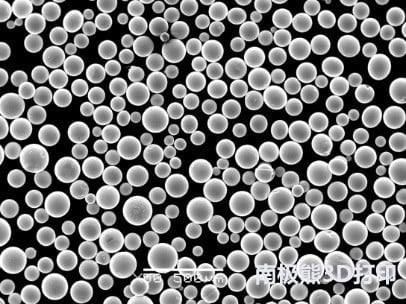
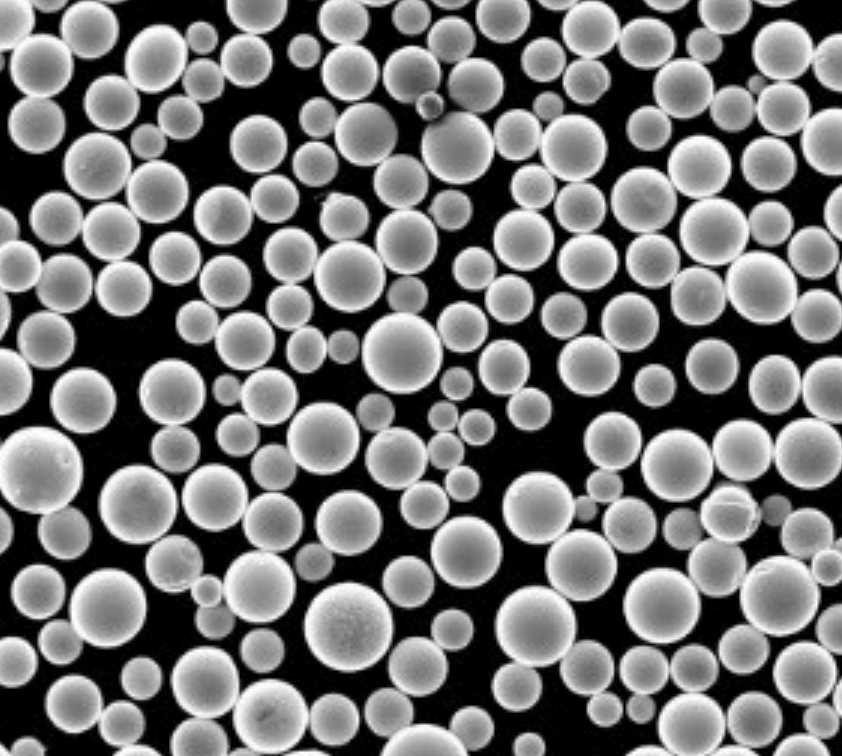
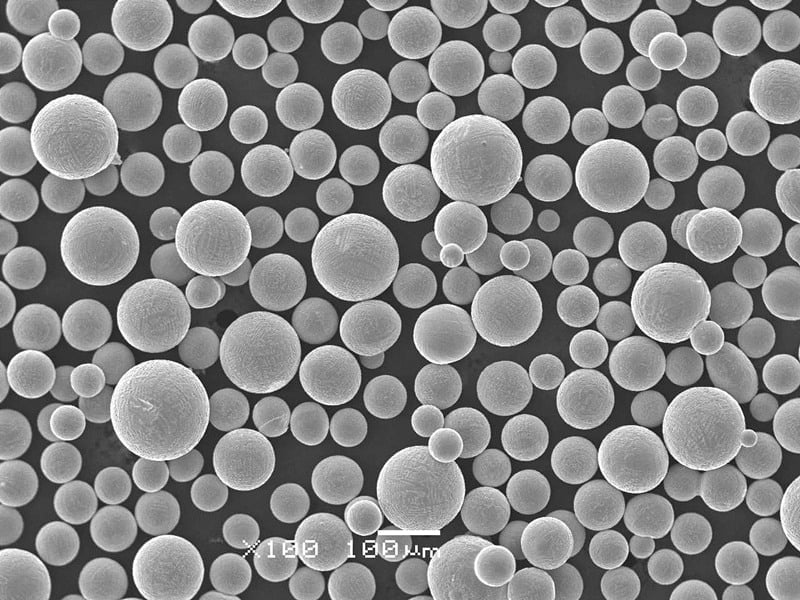
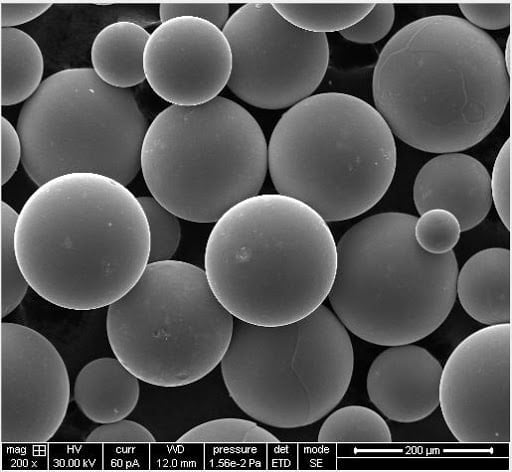
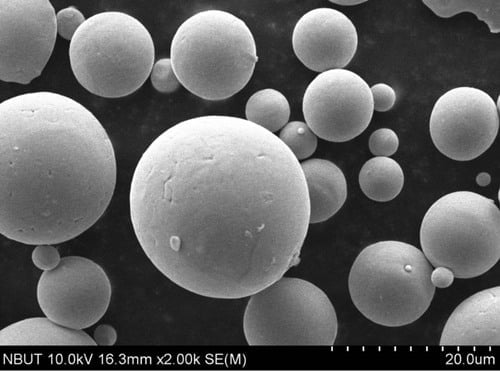

Specyfikacje, rozmiary, gatunki i normy
Niobium powder comes in various specifications, sizes, grades, and standards to meet the diverse needs of different applications. Here, we present a detailed overview of these parameters.
| Specyfikacja | Zakres rozmiarów | Stopień | Standardy |
|---|---|---|---|
| High-Purity Niobium Powder | 1-45 microns | 99.9% Pure | ASTM B392 |
| Niobium Hydride Powder | 5-50 mikronów | Klasy niestandardowe | ISO 9001 |
| Niobium Carbide Powder | 1-10 mikronów | Klasa przemysłowa | MIL-STD-1312 |
| Niobium-Aluminum Alloy Powder | 10-100 mikronów | Klasa lotnicza | AMS 7847 |
| Niobium-Titanium Alloy Powder | 1-20 microns | Superconductor Grade | ASTM F2063 |
| Niobium-Tin Alloy Powder | 1-30 microns | Superconductor Grade | ASTM A145 |
| Niobium-Nickel Alloy Powder | 1-50 mikronów | Klasa morska | ASTM B884 |
| Niobium-Zirconium Alloy Powder | 1-25 mikronów | Nuclear Grade | ASTM B523 |
| Niobium-Silicon Alloy Powder | 5-50 mikronów | High-Temperature Grade | AMS 5652 |
| Niobium-Boron Alloy Powder | 1-15 microns | Defense Grade | MIL-DTL-12560 |
Dostawcy i szczegóły dotyczące cen
Niobium powder is available from various suppliers worldwide, with prices varying based on the type, purity, and quantity. Here, we provide an overview of some of the key suppliers and their pricing details.
| Dostawca | Lokalizacja | Types Available | Cena (za kg) |
|---|---|---|---|
| CBMM | Brazylia | High-Purity Niobium Powder, Niobium-Aluminum Alloy Powder | $300 – $500 |
| H.C. Start | Niemcy | Niobium Carbide Powder, Niobium-Titanium Alloy Powder | $350 – $550 |
| Ningxia Orient Tantalum Industry Co. | Chiny | Niobium Hydride Powder, Niobium-Nickel Alloy Powder | $320 – $480 |
| Admat Inc. | USA | Niobium-Zirconium Alloy Powder, Niobium-Boron Alloy Powder | $340 – $530 |
| Zaawansowane metale ogniotrwałe | USA | Niobium-Silicon Alloy Powder, High-Purity Niobium Powder | $310 – $520 |
Price Comparison and Factors Affecting Costs
When comparing prices of niobium powder, several factors come into play:
- Czystość: Higher purity levels generally command higher prices due to the increased processing required.
- Ilość: Bulk purchases often come with discounts, reducing the cost per kilogram.
- Type of Alloy: Specific alloys with unique properties can be more expensive due to their specialized applications.
- Supplier Location: Proximity to raw materials and production facilities can impact pricing due to transportation and processing costs.
Zalety i wady Niob w proszku
Every material has its pros and cons, and niobium powder is no exception. Here, we present a comparative analysis of the advantages and disadvantages of niobium powder.
| Zalety | Słabe strony |
|---|---|
| Wysoka temperatura topnienia | Relatively expensive |
| Doskonała odporność na korozję | Ograniczona dostępność |
| Unique superconducting properties | Requires specialized handling |
| Wysoki stosunek wytrzymałości do masy | Complex processing |
| Wszechstronne zastosowania | Sensitivity to oxygen and nitrogen contamination |
Zalety
Niobium powder’s high melting point and excellent corrosion resistance make it suitable for high-temperature and harsh environment applications. Its superconducting properties open doors to advanced technological applications, while its high strength-to-weight ratio makes it a valuable component in aerospace and automotive industries. Additionally, niobium powder’s versatility allows it to be used in a wide range of applications, from medical devices to scientific research.
Słabe strony
Despite its many advantages, niobium powder has some drawbacks. It is relatively expensive compared to other metal powders, primarily due to its limited availability and the complex processes required to extract and refine it. Handling niobium powder requires specialized knowledge and equipment, as it can be sensitive to contamination by oxygen and nitrogen. These factors contribute to the higher costs and challenges associated with using niobium powder.
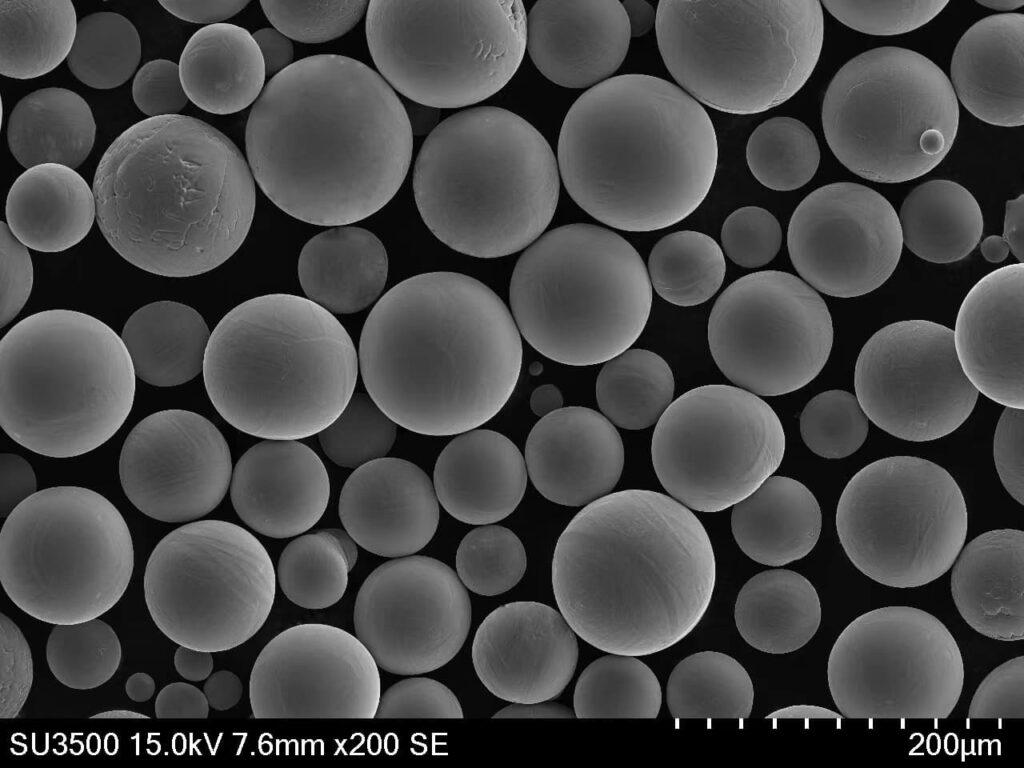
FAQ
To provide further insights and address common queries, here is an FAQ section about niobium powder.
| Pytanie | Odpowiedź |
|---|---|
| What is niobium powder used for? | Niobium powder is used in a variety of applications, including aerospace components, electronics, medical devices, energy storage, industrial tools, chemical processing equipment, and more. |
| How is niobium powder produced? | Niobium powder is typically produced through processes like hydrogen reduction, electron beam melting, and chemical vapor deposition, depending on the required purity and particle size. |
| Why is niobium powder expensive? | Niobium powder is expensive due to its limited natural availability, complex extraction and refining processes, and specialized applications that demand high purity levels. |
| What are the main properties of niobium powder? | Niobium powder is known for its high melting point, excellent corrosion resistance, superconducting properties, high strength-to-weight ratio, and versatility. |
| Can niobium powder be used in 3D printing? | Yes, niobium powder can be used in additive manufacturing or 3D printing to create complex, high-performance components for various industries. |
| What safety precautions are needed when handling niobium powder? | When handling niobium powder, it is important to avoid contamination by oxygen and nitrogen, use protective equipment to prevent inhalation, and store it in a controlled environment to maintain its purity. |
| How does niobium powder enhance battery technology? | Niobium powder, particularly in the form of niobium hydride, enhances battery technology by improving energy density, storage capacity, and charge/discharge efficiency. |
| Are there environmental concerns associated with niobium mining? | Like any mining activity, niobium extraction can have environmental impacts, but responsible mining practices and regulations help mitigate these effects. |
| What industries benefit the most from niobium powder? | Industries such as aerospace, electronics, medical, energy, industrial manufacturing, and scientific research benefit significantly from the unique properties of niobium powder. |
| How does niobium compare to other refractory metals? | Niobium compares favorably to other refractory metals like tantalum and molybdenum in terms of its corrosion resistance, strength-to-weight ratio, and superconducting properties, though it can be more expensive and less widely available. |
Informacje o 3DP mETAL
Kategoria produktu
SKONTAKTUJ SIĘ Z NAMI
Masz jakiekolwiek pytania? Wyślij nam wiadomość już teraz! Po otrzymaniu wiadomości przetworzymy Twoje zapytanie z całym zespołem.
